Recycling Is No Longer #1: The New and Improved 7 R’s of Sustainability
- chloe9091
- Aug 22, 2022
- 3 min read
Remember the 3 R’s of sustainability? Reduce, reuse and recycle?
Well, now there are four more categories, and recycling is at the bottom of the pyramid - it has become the last priority, and the last option. We now encourage you to do these 6 other actions prior to recycling - Rethink, Refuse, Reduce, Reuse, Repair, Regift and then Recycle.
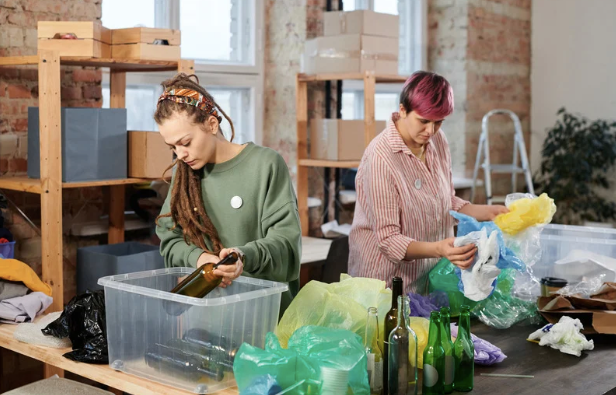
What Happened to Recycling?
Recycling was said to be beneficial to our plastic problem for years. In theory, it helps us reduce our carbon footprint and greenhouse gases by reducing the need for more raw materials. When done properly, the process of recycling can be very proactive, keyword being properly. The issue we are having with recycling is that only 9% of plastic waste is properly recycled. 3 million tons, out of the 8.3 billion tons are recycled, so how is that effective? It’s not. Recycling is not enough.
Here Come The Other “R’s”
As mentioned, recycling wasn’t doing a very good job on its own so it needed a bit of help. It should now be the last resort when dealing with your plastic waste. So what are the other steps? Let’s take you through them!
Rethink
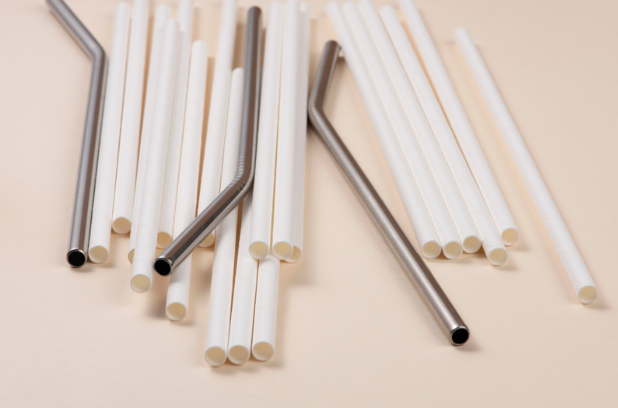
We are all consumers, so what we buy and how we dispose of it can negatively affect the environment. We want to make the “green choice”. A “green consumer” will not only think of themselves but will think about any environmental impact the product may have. So next time you are out shopping, take a step back and rethink what type of consumer you want to be. Think with a Green Thumb!
Refuse

Remember when we asked you to think with a Green Thumb? Well, you will need to do it again in order to complete this step. Consider your purchase carefully and prepare to make no purchase at all. Green customers start the buy-and-use cycle with themselves. They spend less money and only purchase goods that are environmentally friendly.
Reduce
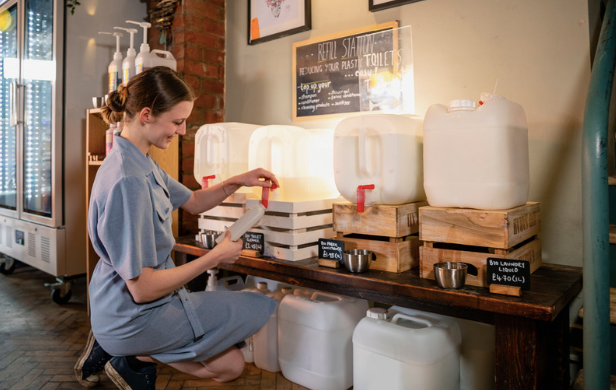
Purchase less, long-lasting goods with minimal to no packaging, borrow rather than purchase, and compost. Donated or sold items are those that are no longer required or in use.
Reuse
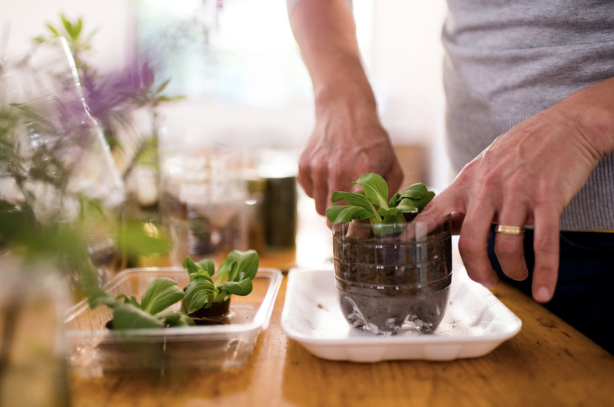
Reusing is preferable to discarding. Examples include giving empty toothpaste tubes new life as funnels, turning old calendar pages into DIY envelopes, storing dry items in glass jars, and cleaning hard-to-reach locations with old toothbrushes.
Repair
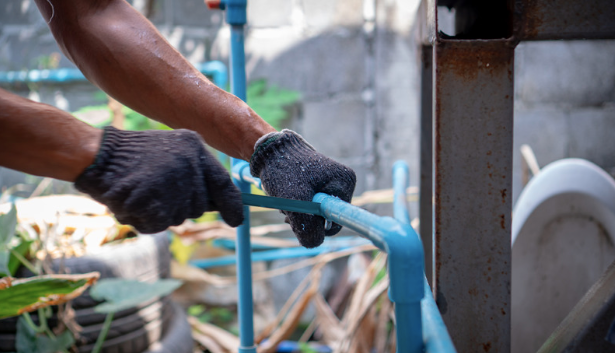
Prior to discarding something, try to fix it. Things that are easily repaired are more often than not thrown away, earning our modern culture the title of "throwaway society." This instinct of ours damages the ecosystem and necessitates the use of more natural resources to produce new goods. By fixing things and taking part in the
"Repair Movement," we can reverse that
negative impact.
Regift

Regifting is the act of giving someone a gift that you previously got from somewhere or someone else. Don’t feel bad! It's a wonderful idea to give it to someone who will appreciate it more than you will. Simply follow the gift-giving etiquette, following the ultimate guideline: That the recipient will enjoy the present.
Recycle
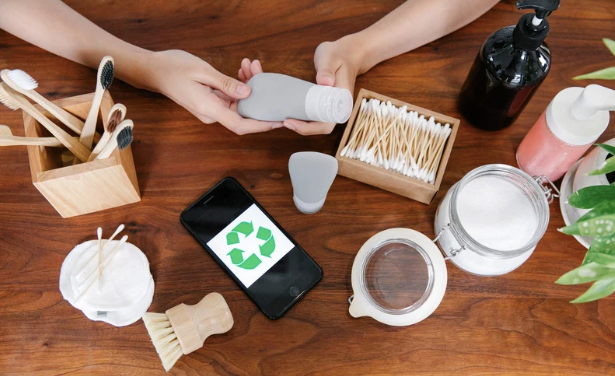
Reintroduce items into the waste stream so they can be utilized later on. Glass is utilized for roads, plastics are melted down to create new items, and we compost our organic waste to use as plant fertilizer. When done properly, recycling can have a positive impact; but like we said, with six other options ahead of it, it should only be a last resort!
If it can't be reduced, reused, repaired, rebuilt, refurbished, refinished, resold, recycled or composted, then it should be restricted, redesigned, or removed from production. - Pete Seeger
Becoming Zero Waste is a goal we should all strive to achieve. We need to act as if our lives depend on it…because it does. Recent studies have shown that by 2030, 53 million more tons of plastic will exist in our waterways and lands. More studies have shown that the year 2050 is the point of no return. We are running out of time!
Implementing the 7 R’s of sustainability is definitely not easy, but it can be done when we all work together! Let’s change our ways to strive to be more sustainable!

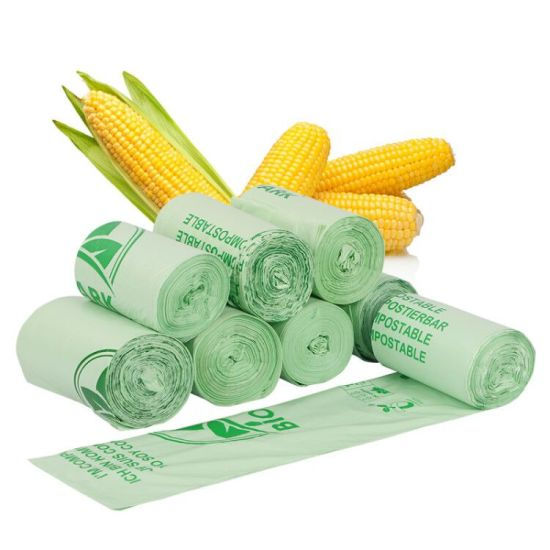


Swanson Reed’s expertise in the HMRC R&D tax credit process is second to none. They made everything clear and simple, ensuring we submitted an accurate claim. Their professional service helped us secure a larger rebate than we initially anticipated. If you need help with your HMRC R&D tax credit, Swanson Reed should be your first point of contact.
This is the best jacket website! From casual wear to a classy statement, Vanquishe Jacket is your go-to choice for upgrading your wardrobe. Made with premium quality and designed for ultimate comfort, our jackets ensure you stand out in every crowd.
Introduction to NURS FPX 4040 Series Assessments
Embarking on the NURS FPX 4040 series is a significant step towards deepening your understanding of informatics and its application in various settings. This series, starting from NURS FPX 4040 Assessment 1 through NURS FPX 4040 Assessment 4, is designed to challenge your analytical skills and enhance your ability to integrate technology effectively.
Personalized Tutoring for Unparalleled Success
Our tutoring service is dedicated to guiding you through the complexities of the NURS FPX 4040 assessments. Whether it's navigating the intricacies of NURS FPX 4040 Assessment 2 or mastering the challenges of NURS FPX 4040 Assessment 3, our personalized approach ensures that you receive the support and insights needed to excel.